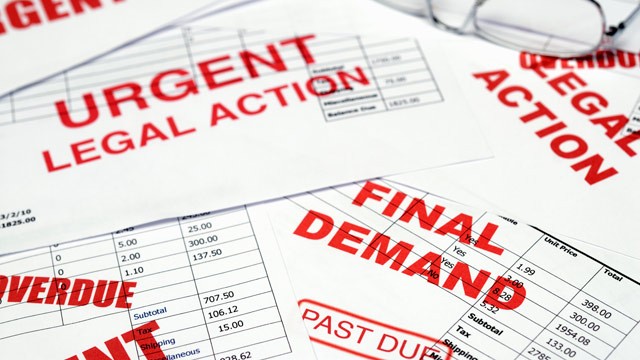Who Has Access to Your Credit Report And Why? – Advice
Who Has Access to Your Credit Report And Why? There are a wide variety of different misconceptions about your credit report that should be cleared up moving forward. Many people are under the mistaken assumption that any business can get your credit report with little to no hassle. In reality, there are only a few specific types of entities that can get this all important document thanks to the Fair Credit Reporting Act and various laws in the state where you live.
Creditors: Both Current and Future
As a general rule of thumb, any time you’re borrowing money from a business or other type of financial institution, it’s safe to assume that this entity can access your credit history under the law. Whenever you apply for a new credit card, go to your bank to take out a loan, apply for a mortgage on a house, try to buy a new car and engage in any other similar type of activity, the business that you’re working with will be able to get and view your report. This is something you can locate on your credit report under “inquiries”. All inquiries made by businesses or financial institutions are referred to as hard inquiries and in most cases will lower your credit score by a few point and stay on your credit report for a minimum of two years.
Utility Providers
While utility providers like your electricity or gas company can view your report, the law is very specific with regards to what they’re able to do with that information. Many states deny a utility provider the ability to turn down providing a person with these types of essential services, even if they have a worse than average credit history or if you’re someone in need of credit repair.
Insurance Companies
Insurance companies are another example of a type of company that can view your credit report and credit history with ease. There are a few specific rules that must be followed, however. An insurance company cannot receive a credit report that has information about your medical history unless you specifically give them permission to. Also, if you’re applying for a life insurance policy that has a value of over $150,000, the report that the insurance provider will get will have more information on it that other types of businesses wouldn’t necessarily have access to. The more negative information, such as late payments, maxed out credit cards, derogatory accounts or excessive inquiries, and as a result the lower your credit score, the more you will have to pay for insurance, whether it’s homeowners, life or auto insurance. Each state however, has different laws when it comes to insurance companies using your credit as a mean to figure out the premium you’d pay. Check your state’s laws in order to find out whether your insurance company has access to your credit, or is allowed to use it against you.
Your Employer
Finally, any type of employer that you have a relationship with can order and view your credit report at just about any time they’d like. Employers often look at a person’s credit report to learn more about them that they wouldn’t be able to find out in an interview – like how they are with money or if they’re behind on their bills. Many employers also look at a credit report as a statement of integrity to a certain extent. An existing employer can also use your credit report as a guide to help them determine if you’re the type of person who deserves a raise or a promotion, for example. Recently though, New York City council banned credit checks for most jobs, not in the financial industry, as did the following states: Nevada, California, Connecticut, Hawaii, Illinois, Maryland, Oregon, Vermont, and Washington. The idea behind this is that the information contained in a report doesn’t necessarily say much about the persons ability to perform at work and in many cases can lead to discrimination among low-income or financially-challenged individuals.
Debt Collectors
Debt collectors are another group of individuals who can easily access your report and view it in detail should the need arise. Under the Fair Credit Reporting Act, debt collectors can use credit reports to do everything from locate a customer’s current whereabouts to look at the way these people handle their finances over time. They can use your credit report in order to locate you and try to collect money or to find out whether you are behind on your other debts as well. Either way this does not work in your favor, because most of the times, the methods that collection agencies use to collect from you are not the most consumer friendly.
For additional information on who has access to your credit report and why, as well as credit advice or a comprehensive review of your credit report, feel free to Sign Up for $0 Today.



